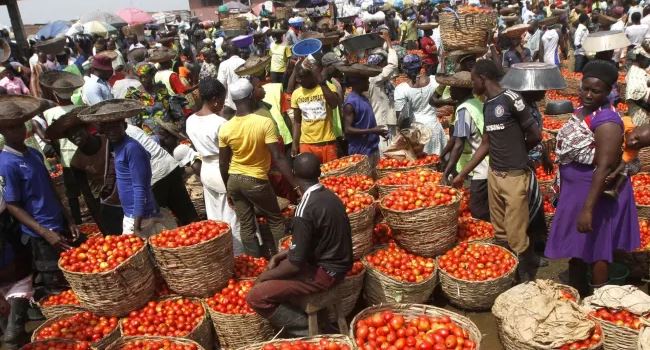Metro
Food crisis rampant in Lagos, Kano, Rivers, Abuja –NBS

The coronavirus outbreak has worsened food crisis in Lagos, Kano, Rivers and Abuja, the National Bureau of Statistics (NBS) has said.
The Organisation stated this in a report titled: ‘The Impact of COVID-19 in Kano, Lagos, Rivers, and FCT Abuja, obtained from its website on Monday.
The study, which is the latest commentary on households’ response to the coronavirus crisis in the key states of Kano, Lagos, Rivers and Abuja and which can be benchmarked against pre-pandemic data from the 2018/2019 Nigerian Living Standard Survey, was conducted in collaboration with the World Bank Poverty Team.
“Food insecurity appears to be prevalent across all four states, but especially in Rivers and FCT Abuja where 79 per cent of households and 72 per cent of households respectively reported having to skip meals since the start of the pandemic.
“Households in all four states are drawing down their savings and borrowing money to cover their living expenses, which may leave them more economically vulnerable and reduce their investments in human capital in the future,” the NBS said.
Read also: Food prices soared in July –NBS
The report, which also contains the results of the second quarter 2020 Labour Force Survey, observes that the proportion of people involved in economic activities in the 3 states and the FCT was lower in June/July 2020 than before the outbreak. The FCT was the worst hit, with the share of people working down by 14 percentage points.
“Even if some people have resumed work, incomes may still be precarious, with larger shares of workers in Kano and Rivers engaged in agriculture and a smaller share of workers in Lagos engaged in industry than before the COVID-19 crisis,” the NBS said.
It stated that the Q2 Labour Force Survey was collated from 17th June to 8th July.
“Households in all four states are drawing down their savings and borrowing money to cover their living expenses, which may leave them more economically vulnerable and reduce their investments in human capital in the future.
“More than 1 in 5 households in Kano and FCT Abuja and more than 1 in 10 households in Lagos and Rivers reported violating containment measures in order to maintain a living, emphasizing the trade-offs households face between earning incomes and protecting their health,” it added.
Join the conversation
Support Ripples Nigeria, hold up solutions journalism
Balanced, fearless journalism driven by data comes at huge financial costs.
As a media platform, we hold leadership accountable and will not trade the right to press freedom and free speech for a piece of cake.
If you like what we do, and are ready to uphold solutions journalism, kindly donate to the Ripples Nigeria cause.
Your support would help to ensure that citizens and institutions continue to have free access to credible and reliable information for societal development.
























